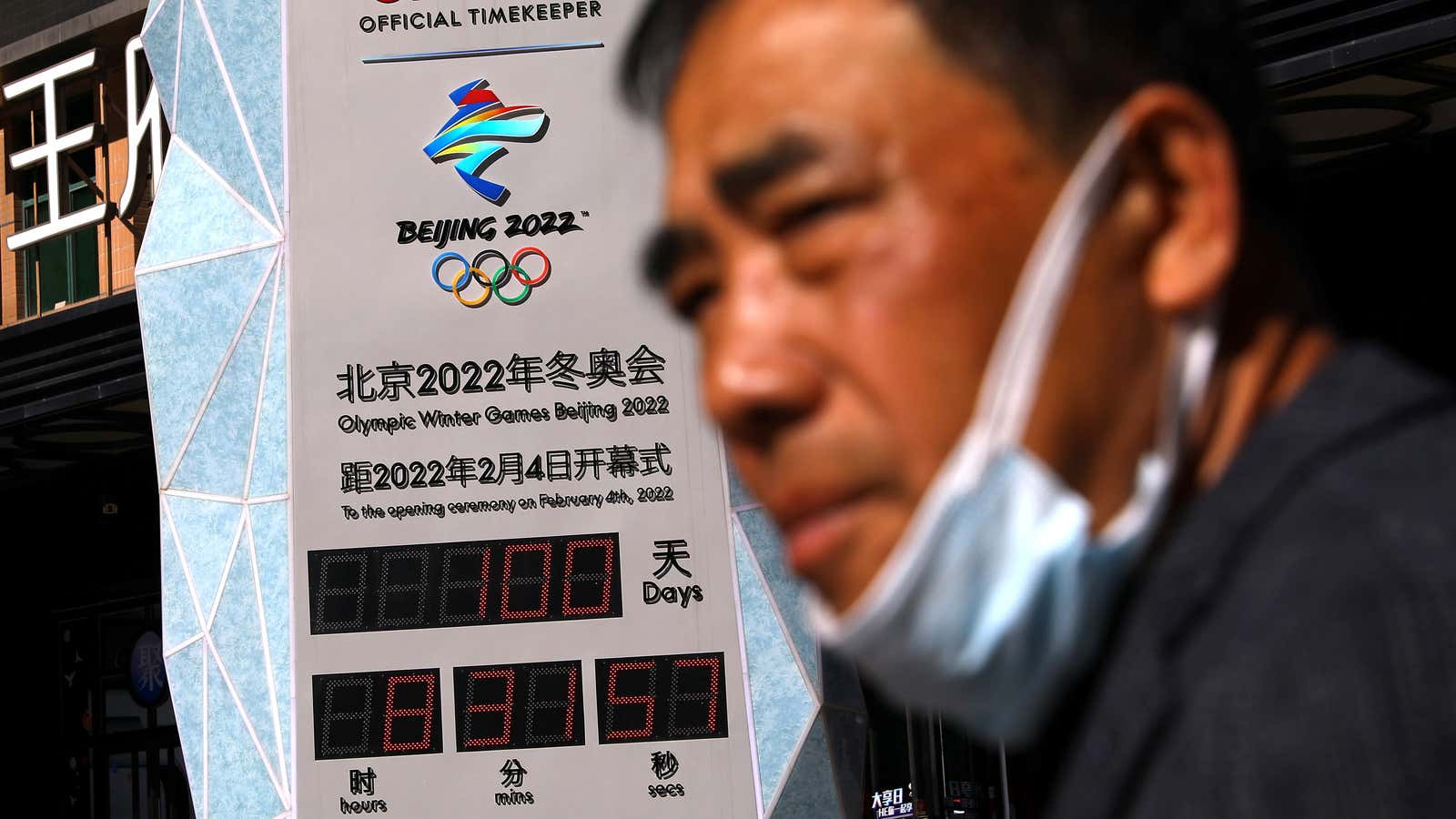The 2020 Tokyo Olympics, held in 2021 because of the pandemic, were a successful but muted affair. With the 2022 Beijing Winter Olympics set to kick off in February, less than eight months after the close of the last event, some are wondering who outside of China is actually looking forward to these games.
The Tokyo Olympics were limited by a pandemic that forced some athletes to drop out of the games, and shut out live audiences at the competitions. As a result, along with their economic and health concerns, many viewing at home simply weren’t that interested. Ratings for the Tokyo Olympics were down by 42% compared to the summer game of 2016 in Brazil.
“We’ve had some bad luck,” NBCUniversal CEO Jeff Shell said during a conference call with analysts and investors toward the end of the games this summer.
However, tepid viewership didn’t significantly impact the company’s bottom line. NBC’s 140 sponsors of the games landed the broadcaster $1.8 billion in revenue, according to quarterly earnings report released by Comcast, the network’s parent company, last week. That’s a roughly 12% increase over the last summer Olympics in Brazil, which earned the company $1.6 billion. The ratings dip didn’t impact the company’s advertising revenue since the network showed ads across multiple platforms, including streaming video, according to Adweek.
Given those numbers, it should come as no surprise that Comcast is an enthusiastic proponent of the Beijing games, even if viewers aren’t necessarily guaranteed, and political concerns around human rights issues, as well as the ongoing covid-19 situation, continue to shadow the event.
